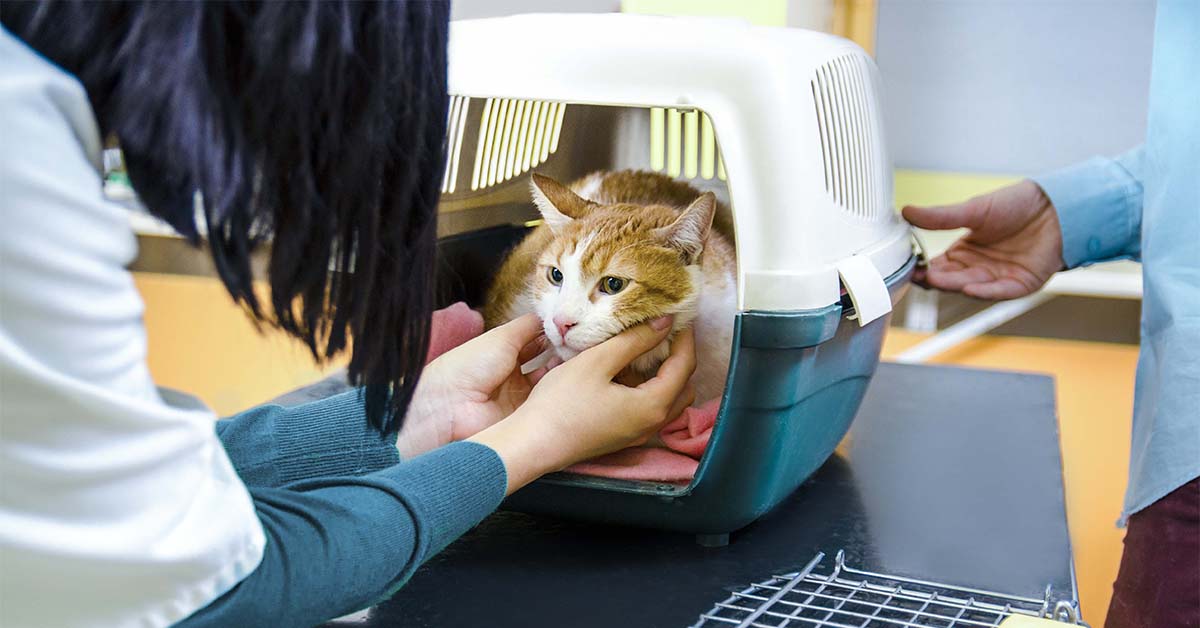Trazodone for Dogs: A Guide for Pet Owners
Trazodone can be useful for managing anxiety-related conditions in dogs. Learn its uses, side effects, and alternative options.
When it comes to managing anxiety and behavioral issues in dogs, trazodone is a medication that often comes up in discussions with veterinarians. Our MedVet team is sharing what the medication is, how trazodone can be used for dogs, potential risks, and some alternative options and integrative medicine therapies worth considering.
What is Trazodone and How Can it Be Used for Dogs?
Trazodone is a prescription medication primarily used in humans to treat depression and anxiety. However, it has also found a place in veterinary medicine, particularly for managing anxiety-related conditions in dogs. It belongs to the class of medications known as serotonin antagonist and reuptake inhibitors (SARIs). By increasing serotonin levels in the brain, trazodone helps to stabilize mood and reduce anxiety.
Conditions Treated with Trazodone in Dogs
Trazodone is versatile in its use for canines. It may be prescribed for:
- Separation Anxiety: Some dogs become stressed when they’re left alone or away from their family. Trazodone can help dogs cope with this stress.
- Noise Phobias: Trazodone can be particularly useful for calming dogs that are fearful of loud noises like fireworks or thunderstorms. Some dogs may find loud noises bothersome because their hearing is more sensitive to changes in volume and pitch than ours. Additionally, when they can’t determine the source of sounds, it can be even scarier for them.
- Generalized Anxiety: Dogs may exhibit nervousness in various situations, such as car travel or being in unfamiliar situations.
- Post-Surgery Recovery: Dogs are sometimes agitated or stressed following surgical procedures and trazodone can help calm them, preventing them from disturbing surgical sites or overexerting themselves, which is important for proper healing.
- Veterinary Visits: While veterinarians love to see your pet, the feeling isn’t always mutual. Trazodone given before their visit can calm them. In addition, some of our MedVet team members are fear-free certified and balance the pet’s (and owner’s) emotional and physical wellbeing to make vet visits more pleasant.
Learn more about common pet fears and how you can help your pet here.

Benefits of Trazodone for Dogs
The primary benefit of trazodone for dogs is its effectiveness in reducing anxiety and promoting a calmer demeanor in canines, which can improve their quality of life and facilitate easier handling by their owners and veterinarians. Trazodone is especially beneficial for managing situational anxiety, providing temporary relief during stressful events.
For dogs with chronic anxiety issues, trazodone can provide a consistent state of calm, which can be particularly beneficial in multi-pet households or in environments that frequently change.
Risks and Side Effects for Trazodone in Dogs
While the side effects of trazodone are generally manageable, understanding them in detail can help pet owners make informed decisions. For instance, sedative effects can sometimes mask underlying issues such as pain or discomfort. It’s important to closely observe your dog’s behavior and physical condition, especially when starting a new medication.
Common side effects include:
- Sedation: Your dog may appear sleepy or lethargic.
- Gastrointestinal Issues: Your dog may experience diarrhea or vomiting.
- Ataxia: Some dogs may have difficulty coordinating their movements.
- Increased Anxiety: Some dogs may experience increased anxiety rather than the medication’s intended purpose of calming them.
The interaction of trazodone with other medications can sometimes lead to increased serotonin syndrome, a life-threatening condition where too much serotonin is present in the brain. Signs of serotonin syndrome include confusion, increased heart rate, shivering, diarrhea, fever, and seizures. Additionally, in rare cases, trazodone can cause more severe reactions such as cardiac arrhythmias or allergic reactions characterized by swelling, hives, or difficulty breathing. If any of these signs occur, contact your family veterinarian immediately, or visit your local MedVet or emergency veterinary hospital.
It’s important to tell your veterinarian about any medications, including vitamins, supplements, or herbal therapies, that your pet is taking as trazodone can interact with other medications, including:
- Pain medications: Such as tramadol, in combination with trazodone can lead to serotonin syndrome, as discussed above.
- Monoamine oxidase inhibitors (MAOIs): Such as selegiline, used for treating canine cognitive dysfunction.
- Selective serotonin reuptake inhibitors (SSRIs): Like fluoxetine, used for depression and anxiety.
- Certain antibiotics and antifungals: Which can affect how trazodone is metabolized.
Additional medications dogs are commonly prescribed that can lead to serotonin syndrome, sedation, or depression when combined with trazodone include:
- Mirtazapine: An anti-depressant medication often used to treat weight loss and anorexia (loss of appetite) caused by various conditions such as liver, kidney, or stomach disease or the effects of chemotherapy.
- Metoclopramide: Uses include relieving nausea, vomiting, heartburn, and gastroesophageal reflux disease),
- Ondansetron: Treats nausea and severe vomiting in dogs, such as those undergoing chemotherapy or with parvovirus.
Trazodone should not be used for dogs who have severe heart disease or liver or kidney impairment.
Integrative Medicine and Alternatives to Trazodone for Dogs
Integrative veterinary medicine offers alternative therapies, such as massage therapy, acupuncture, and chiropractic care, to complement your pet’s traditional medicine therapies to encourage healing, relieve pain, reduce anxiety, and optimize your pet’s quality of life. These therapies may be considered as an alternative or additional treatment for dogs given trazodone.
Sometimes, simple changes in your home environment can reduce your dog’s anxiety. Creating a dedicated safe space for your dog, where they can retreat when stressed, and using noise-canceling elements, such as white noise, to reduce the impact of loud sounds can be effective strategies.
A small number of studies support the positive impact of diet on problematic behavior in dogs. These include supplementation with milk or fish derivatives, manipulation of amino acid or protein levels, a combination of the above, and homeopathic or herbal supplementation. Be sure to talk with your vet about potentially adjusting your dog’s diet to support their mental health.
In addition, interactive toys that engage your dog’s mind, like puzzle toys, can divert their attention away from stressors and reduce anxiety through mental stimulation.

Finally, a canine behavioral therapist can work with you and your dog to address the root causes of your pet’s anxiety through training and behavior modification techniques. In conclusion, trazodone can be a valuable tool for managing anxiety in dogs, helping them lead more comfortable and stress-free lives. However, it’s a decision that should be made with comprehensive guidance from your veterinarian, considering all potential risks and interactions.
FAQs
Learn More
For ways to ensure your pet lives a happier, healthier life, visit our Pet Care Resources library.
Pet Care ResourcesContents
Learn More
For ways to ensure your pet lives a happier, healthier life, visit our Pet Care Resources library.
Pet Care Resources


